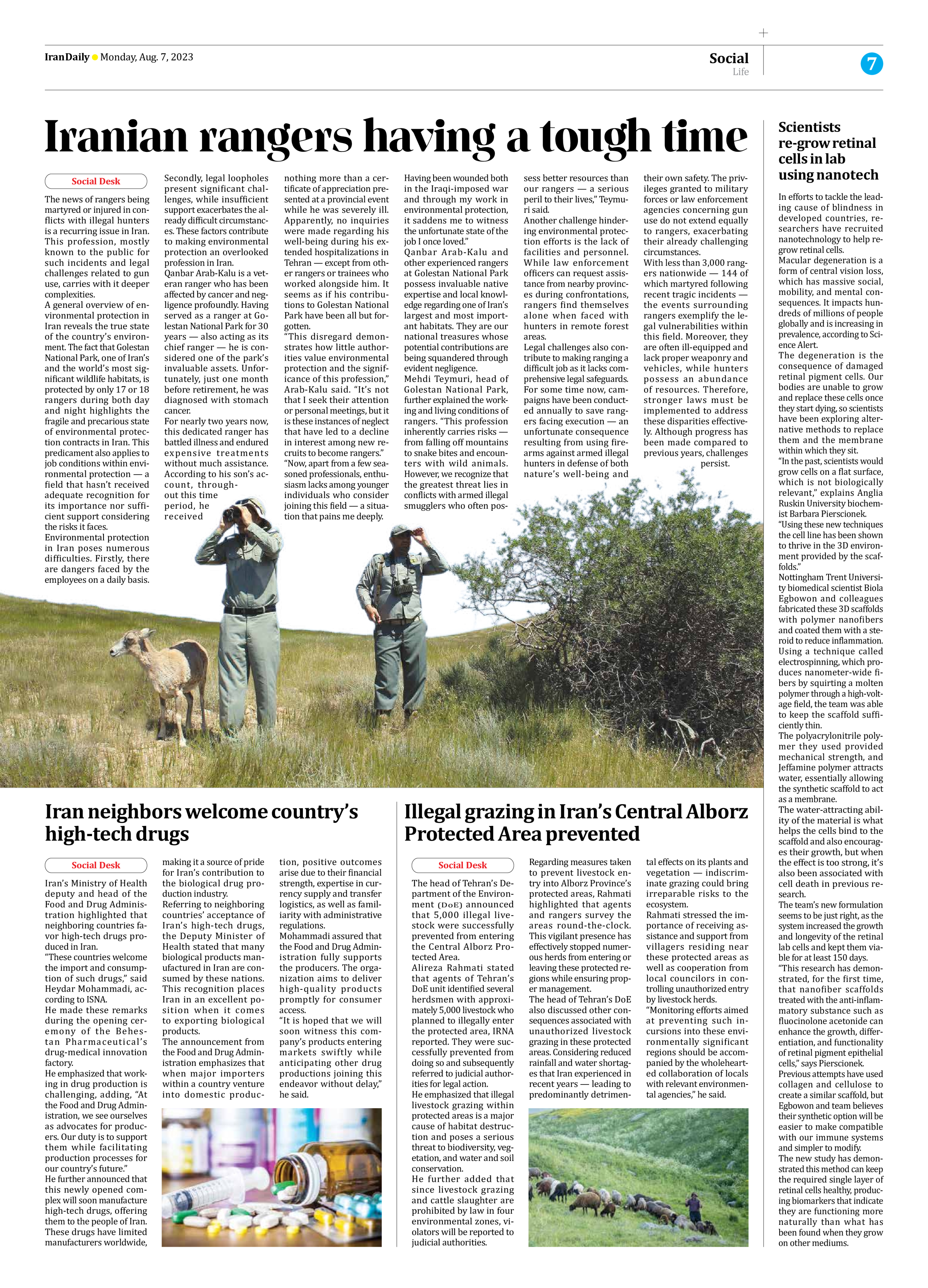
Iranian rangers having a tough time
The news of rangers being martyred or injured in conflicts with illegal hunters is a recurring issue in Iran. This profession, mostly known to the public for such incidents and legal challenges related to gun use, carries with it deeper complexities.
A general overview of environmental protection in Iran reveals the true state of the country’s environment. The fact that Golestan National Park, one of Iran’s and the world’s most significant wildlife habitats, is protected by only 17 or 18 rangers during both day and night highlights the fragile and precarious state of environmental protection contracts in Iran. This predicament also applies to job conditions within environmental protection — a field that hasn’t received adequate recognition for its importance nor sufficient support considering the risks it faces.
Environmental protection in Iran poses numerous difficulties. Firstly, there are dangers faced by the employees on a daily basis. Secondly, legal loopholes present significant challenges, while insufficient support exacerbates the already difficult circumstances. These factors contribute to making environmental protection an overlooked profession in Iran.
Qanbar Arab-Kalu is a veteran ranger who has been affected by cancer and negligence profoundly. Having served as a ranger at Golestan National Park for 30 years — also acting as its chief ranger — he is considered one of the park’s invaluable assets. Unfortunately, just one month before retirement, he was diagnosed with stomach cancer.
For nearly two years now, this dedicated ranger has battled illness and endured expensive treatments without much assistance. According to his son’s account, throughout this time period, he received nothing more than a certificate of appreciation presented at a provincial event while he was severely ill. Apparently, no inquiries were made regarding his well-being during his extended hospitalizations in Tehran — except from other rangers or trainees who worked alongside him. It seems as if his contributions to Golestan National Park have been all but forgotten.
“This disregard demonstrates how little authorities value environmental protection and the significance of this profession,” Arab-Kalu said. “It’s not that I seek their attention or personal meetings, but it is these instances of neglect that have led to a decline in interest among new recruits to become rangers.”
“Now, apart from a few seasoned professionals, enthusiasm lacks among younger individuals who consider joining this field — a situation that pains me deeply. Having been wounded both in the Iraqi-imposed war and through my work in environmental protection, it saddens me to witness the unfortunate state of the job I once loved.”
Qanbar Arab-Kalu and other experienced rangers at Golestan National Park possess invaluable native expertise and local knowledge regarding one of Iran’s largest and most important habitats. They are our national treasures whose potential contributions are being squandered through evident negligence.
Mehdi Teymuri, head of Golestan National Park, further explained the working and living conditions of rangers. “This profession inherently carries risks — from falling off mountains to snake bites and encounters with wild animals. However, we recognize that the greatest threat lies in conflicts with armed illegal smugglers who often possess better resources than our rangers — a serious peril to their lives,” Teymuri said.
Another challenge hindering environmental protection efforts is the lack of facilities and personnel. While law enforcement officers can request assistance from nearby provinces during confrontations, rangers find themselves alone when faced with hunters in remote forest areas.
Legal challenges also contribute to making ranging a difficult job as it lacks comprehensive legal safeguards. For some time now, campaigns have been conducted annually to save rangers facing execution — an unfortunate consequence resulting from using firearms against armed illegal hunters in defense of both nature’s well-being and their own safety. The privileges granted to military forces or law enforcement agencies concerning gun use do not extend equally to rangers, exacerbating their already challenging circumstances.
With less than 3,000 rangers nationwide — 144 of which martyred following recent tragic incidents — the events surrounding rangers exemplify the legal vulnerabilities within this field. Moreover, they are often ill-equipped and lack proper weaponry and vehicles, while hunters possess an abundance of resources. Therefore, stronger laws must be implemented to address these disparities effectively. Although progress has been made compared to previous years, challenges persist.







